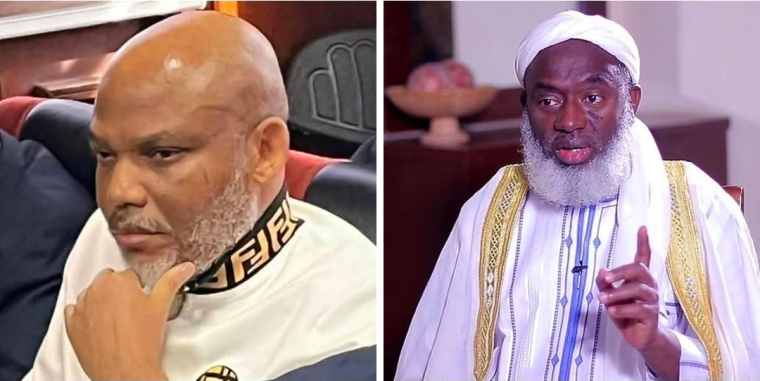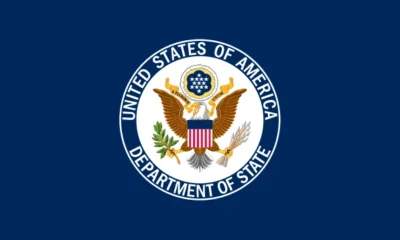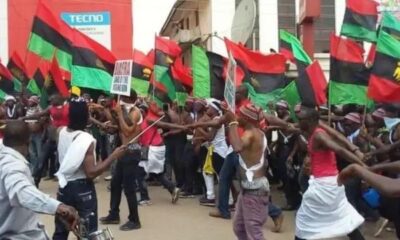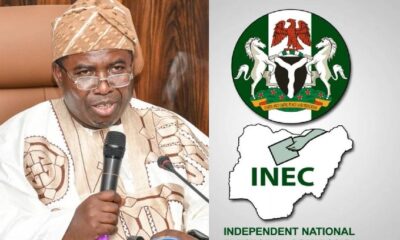Politics
Islamic Cleric Sheikh Gumi Gives Condition to Advocate Nnamdi Kanu’s Release From Prison
Sheikh Ahmad Gumi says he will lead calls for Nnamdi Kanu’s pardon if the IPOB leader “shows remorse,” arguing that Nigeria must embrace non-kinetic solutions to its worsening insecurity.

- Sheikh Ahmad Gumi says he will lead calls for Nnamdi Kanu’s pardon if the IPOB leader “shows remorse,” arguing that Nigeria must embrace non-kinetic solutions to its worsening insecurity.
slamic cleric, Sheikh Ahmad Gumi, has defended his push for a non-kinetic approach to insecurity in Nigeria, saying he will lead the calls for the release of the convicted leader of the Indigenous Peoples of Biafra (IPOB), Nnamdi Kanu, if the latter shows remorse.
Kanu was convicted of seven counts of terrorism by the Federal High Court in Abuja. However, Gumi said if the IPOB leader shows remorse for his actions and pronouncements, he will be among those pushing for his pardon.
“This Kanu that was imprisoned for terrorism for agitating that our soldiers should be killed, if this same Kanu now will show remorse and also call for peace, honestly, I will be in the forefront in calling for his pardon and amnesty for him,” he said on Tuesday’s edition of Channels Television’s The Morning Brief.

He also referenced historic precedents for amnesty in Nigeria.
“Look, Shagari, our president, we are from the same town. Shagari gave amnesty to Ojukwu. Look at Umar Yar’Adua; he gave amnesty to the Niger Delta militants, who have also committed acts of terrorism. So, this is how we are.”
Gumi, who has been a vocal advocate of non-kinetic approaches to security—especially regarding northern Nigeria—said the country stands to benefit more from dialogue than force.
He argued that Nigeria should embrace peaceful options where available.
“We have people who are ready to put down their arms, then why do you always decide it has to be kinetic?”
DON’T MISS: BREAKING: UK Turns Down FG’s Appeal for Ekweremadu’s Prison Transfer
The cleric added that even global superpowers struggle with insurgencies.
“Even America could not succeed in Afghanistan, even Israel could not succeed in a small strip of land. Our army is not designed for the gorilla; no army is designed for the kind of people we are showing now, no army is designed for it,” he said.
Gumi maintained that dialogue remains possible with some groups.
“If you have been following, the Fulani herdsmen have been calling for peace. When you call them for peace, they come with their guns for many reasons,” he said.

He then questioned whether similar dialogue was still feasible for other violent groups.
“Can you call IPOB for peace? Can you call Boko Haram? I think the former president has called for peace, and they came, but now it’s difficult to call for peace again. So, anybody who inclines to peace. I’m with him, I’m telling you.”
His comments come amid rising insecurity across the country. Recent mass abductions of schoolchildren and worshippers in several states have intensified public concern over safety.
President Bola Tinubu has directed security agencies to go after the attackers, but opposition groups have criticised his administration’s handling of the crisis, describing it as inadequate.























